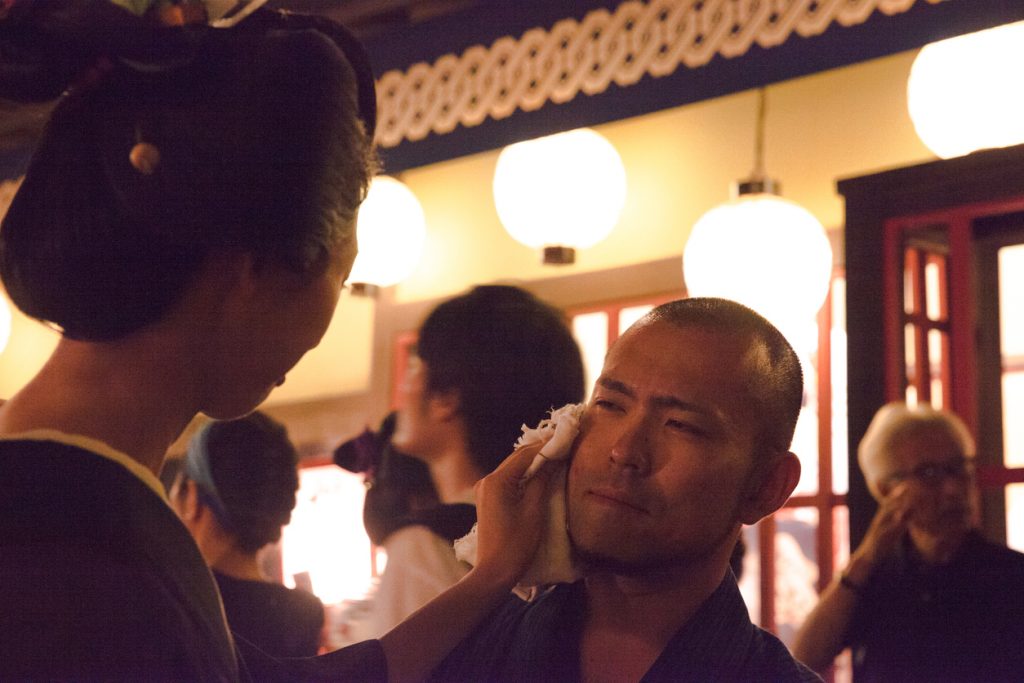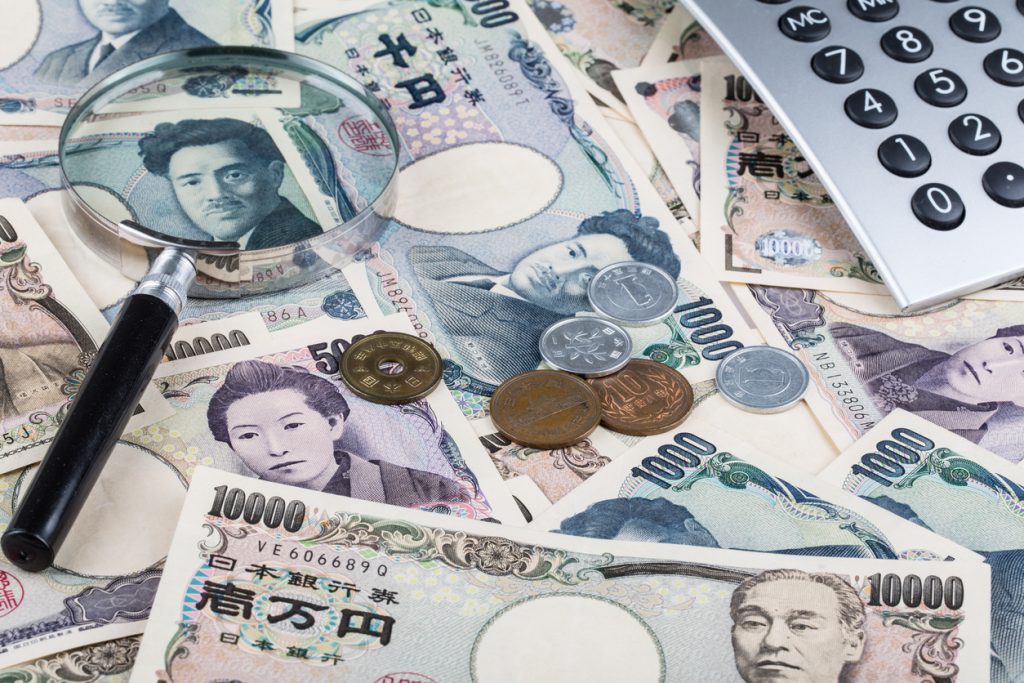Love In Japan: Common Post-honeymoon Stage Issues
Dealing With Culture Shock
All international couples, raise your hands if you’ve been there, done that.
So you’ve been dating your Japanese partner for a while now and lately you’ve started to notice that things are settling into a routine between you two. The little things start to crop up in your relationship; comments that wouldn’t have bothered you get you thinking and things that you wouldn’t normally consider a problem might suddenly lead to a huge blow out.
For most couples this is when relationships either move into a serious territory or begin to fall apart. Based on my own experiences, the most common post-honeymoon problems for international couples in Japan tend to fall into four major categories, of which any combination of the issues is possible. Here they are.
Unintentionally Cruel Comments

When the facade of being the perfect partner falls away and the reality of both people comes to the surface, people might start to make comments — saying things that, while somewhat true, are still hurtful in the way that they are expressed. My Japanese ex once blew me away by saying that I looked like a Halloween goth, and that I dressed like I was going to a funeral. After first feeling hurt and then getting angry, I managed to ask him what he meant, and it turned out that he was simply worried that I was depressed — that that was why I was wearing so much black. He associated black with depression, and just assumed that my keen fashion sense meant I wanted to hide in my room all day. I had to explain to him that I just like black, and that I was not even close to being depressed.
For many couples [the end of the honeymoon period] is when relationships either move into a serious territory or begin to fall apart.
What to do when this happens? Comments on one’s style, weight, looks, jobs, and so on, or jokes that seem to cut a little more deeply that before, might be coming from a place of genuine care, but could lead to a break-up thanks to misunderstandings and hurt feelings. You should remember that this is a sign of closeness — your partner is finally getting in a comfortable zone that allows some funny jokes at your expense and you are finally getting ready to feel offended by them and express your anger. Couples that have just started dating don’t usually have this. Return the joke (come on, we all have a few things we can make fun of each other; any signs of him getting bald lately?) and remind him that you also see his weak sides, too. If you feel offended, express it and teach him the things that get on your nerves. Show him the red signs to avoid similar accidents in the future and if you both are real, you’ll learn to either avoid such comments or have a good laugh about them.
On the other hand, it should go without saying though that if someone is constantly putting you down, making hurtful comments or otherwise making you feel inadequate, you should get as far away from them as possible right away.
Weight Gain

You go out for dinner, drinks, meet for coffee, enjoy Christmas cakes together and so on — is it any wonder that you might find yourself, and your partner, gaining a little weight together? Given how difficult it can be to find reasonably-sized clothing here, this is understandably a problem for some of us ladies, while gaining weight might make him feel displeased with himself, or less like the man he was before you started dating. You may find yourself unhappy with your appearance and commonly grumpy, while he might start making comments about wanting to work out more, or spend more time at the gym. One of you might suddenly be more interested in cooking at home, saying that going to a restaurant or cafe is a waste of money. And no, if your boyfriend says this, it doesn’t mean that he doesn’t want to hang out with you in public.
You may find yourself unhappy with your appearance and commonly grumpy, while he might start making comments about wanting to work out more, or spend more time at the gym.
What to do when this happens? Take a deep breath as a start. Then bring up the issue. Don’t be afraid to tell your partner that those three, four kilos over are bothering you and ask for his opinion (but don’t get angry if he answers positively to your “Have I gained weight recently?” rhetorical question). If it’s bothering you, find a way to work it out together — jogging together, going to the gym and watching over each other for cutting on the cakes can make your relationship much stronger. Cooking at home is also a great solution. If your partner is starting to consider this relationship serious enough, he might want to try imagining you as a family. You may also have a diet calendar together.
Intensified Gender Roles

Every culture has its traditional roles for men and women. While these roles are changing, there are many ways in which people in Japan are still socialized towards certain behaviors — women being tolerant and motherly-kind, while men are meant to be strong businessmen and have good communication skills. This isn’t true of everyone, but it is something that can come up when you are dating someone from Japan. They might have certain expectations of the roles in the relationship, and despite dating someone from another culture, these feelings might not change.
They might have certain expectations of the roles in the relationship, and despite dating someone from another culture, these feelings might not change.
I had an ex once say to me that I should have my tattoos removed before we have children, because “mothers don’t have such things.” In my case, that was the final straw in a series of problems too long to list here, but on the other hand, there I was blaming him for not being able to do simple home repairs; things that every men in my hometown would know how to (or at least brag about being able to) do. We all have certain expectations of what our partner should be doing, or what sort of life you will have together, but these are ideas that need to be worked out together.
What to do when this happens? Remind yourselves that before being victims of cultural and social norms, you are human beings. Remind yourselves that the whole point about being in an international relationship is about breaking such pre-established norms and establishing new ones. Openly tell your partner how you feel about being told so and so and ask him how he would feel if you blamed him for not being Uncle Handy with that broken light bulb at home. A key to solving such issues is communication, but don’t bring up the culture card way too much, because often times you can’t change cultural perceptions over night. Make it about you two and work out solutions that apply to you only, not the population of your entire country or Japan.
Financial Concerns

Money, money, money — the root of all evil. The cost of living in Japan can be quite high, going out on dates can be expensive, and money can start to become a problem in a relationship early on. While your guy might initially find it fun to splash out on a fancy restaurant and even a love hotel or two, that constant spending might be draining on his finances. Likewise, if you are independently wealthy and your guy isn’t, or if you insist on paying your share, but make far less than you partner, you’re going to feel the squeeze on your wallet sooner than they are, which can lead to stress on the relationship as well. No one wants to live paycheck to paycheck, and it’s always a good idea to save for an emergency, so money issues regarding how and when to spend on what can quickly become fuel for some epic fights between partners.
What to do when this happens? Again, don’t be afraid to talk about it. Tell him that you’re running a bit tight on the finances lately and suggest that you go lavish only once a month after pay day or on special occasions only. There are many ways you can have fun together without breaking the bank (Netflix, anyone?) and having cheap ramen for dinner once in awhile can feel way better than foie gras. Compensate with yakiniku dinner when you get your pay, but keep it modest for the rest of the month.
Communication: The Golden Solution

The most important thing to remember is to communicate with one another. Communication is everything in a healthy relationship, and if you can’t communicate with someone in an equal setting, you shouldn’t be with them. The Japanese language is rich in vague terms and unclear explanations, and when you come from a culture where this is not the case, the finer points of being in a relationship need to be established more clearly for both parties.
Communication is everything in a healthy relationship, and if you can’t communicate with someone in an equal setting, you shouldn’t be with them.
It may be very uncomfortable, could even seem confrontational in fact, but if you are in a relationship with someone that you want to be with, this sort of exchange needs to take place. Set some time aside, and talk about any issues, any goals for the future, any wants, and see how much you two have in common. If it turns out that you both want very different things and compromise is impossible, then walk away on good terms. Otherwise, keep talking.
And if you are struggling with issues related to your relationship, work, or if you need someone to talk to, reach out to TELL Japan, and get the help that you need, or visit the Gender Equality Bureau’s website, to learn more. Or ask me. I’ll be around.
Facing any issues with your Japanese partner? Want to take the relationship to another level but don’t know how? If you have any questions for Hilary, send an email to editorial@gplusmedia.com and she will answer it in a separate article. Anonymity guaranteed.















Leave a Reply